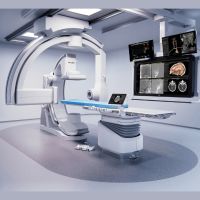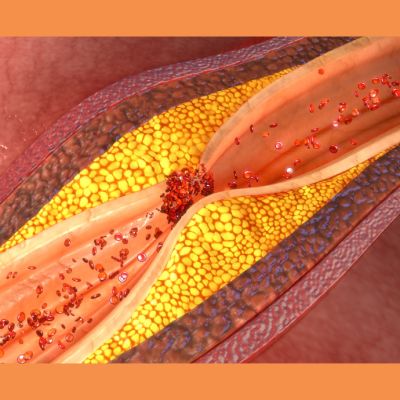Canon Medical Systems Corporation (President and CEO: Toshio Takiguchi; Headquarters: Otawara City, Tochigi, Japan) is accelerating clinical research both domestically and internationally to promote the practical application of Photon Counting CT (PCCT). PCCT holds great promise as a next-generation diagnostic imaging method.
Joint research on PCCT with the National Cancer Center Exploratory Oncology Research & Clinical Trial Center (Director: Toshihiko Doi) and Hospital East (Director: Atsushi Ohtsu; Kashiwa City, Chiba, Japan) began this April with the aim of gathering and verifying a wide variety of clinical evidence.*1 In order to further accelerate and expand research on this promising new technology, Canon Medical has also established partnerships with Radboud University Medical Center (Radboudumc) (Chair, Dr. Bertine Lahuis; Location: Nijmegen, the Netherlands) and with Hiroshima University (President: Mitsuo Ochi; Location: Higashihiroshima City, Hiroshima, Japan) to conduct joint clinical research using PCCT scanners manufactured by Canon Medical. Clinical evaluation will begin in early 2024 with the aim of promoting the rapid commercial application of PCCT.
In order to further accelerate global research on PCCT, Canon Medical Systems Corporation entered into agreements with Radboudumc and Hiroshima University on Nov 14 and Nov 1 of this year, respectively, to conduct joint clinical research on the practical application of PCCT.
At Radboudumc, Professor Mathias Prokop (Chairman, Medical Imaging Department) will lead research to assess the clinical value of PCCT as a new diagnostic imaging method. At Hiroshima University, Professor Kazuo Awai (Department of Diagnostic Radiology, Hiroshima University School of Medicine) will lead research to investigate and evaluate the clinical application of PCCT as well. Going forward, Canon Medical will actively engage in joint research with medical institutions around the world to accelerate the development and clinical application of innovative next-generation PCCT.
A PCCT scanner is a diagnostic imaging system incorporating a next-generation detector (photon-counting detector) that can measure the energy of individual X-ray photons, which is not possible in conventional CT. Compared to conventional CT, PCCT can more accurately identify the composition of various materials and is also expected to improve diagnostic accuracy by providing images that support more precise quantitative analysis. In addition, the higher resolution of PCCT should improve the detectability of lesions as compared to conventional CT, even at much lower exposure doses. Based on its outstanding imaging capabilities, PCCT is expected to become a next-generation CT imaging technique with the potential to offer outstanding clinical value when it enters operation at healthcare facilities around the world.
Canon Medical has the largest share of the diagnostic imaging equipment market in Japan*2 and has long been a world leader in the development of innovative CT technologies, including 320-row Area Detector CT systems (CT scanners in the Aquilion ONE series) and an Ultra-High Resolution CT system (CT scanner Aquilion Precision, TSX-304A). By taking full advantage of the wide range of advanced imaging and manufacturing technologies of the Canon Group, Canon Medical Systems Corporation will conduct research to achieve the rapid realization of PCCT.
Professor Mathias Prokop (Chairman, Medical Imaging Department, Radboudumc) shares, “Photon counting is a potential game changer for CT. The technique can optimize CT image quality, with better contrast, higher resolution, or lower radiation dose requirements, but I believe its true potential lies in pushing the boundaries of CT, moving it from a morphologic diagnostic tool towards a more functional tool. This will enable us to provide more rapid and precise diagnoses and better outcome prediction, especially for patients with cardiac and oncologic problems. Canon Medical’s engineering skills but also their leadership in image reconstruction and evaluation will be key in making this possible. We are proud to partner with Canon Medical to help develop and explore the many opportunities of this novel technology.”
Professor Kazuo Awai (Department of Diagnostic Radiology, Hiroshima University School of Medicine) comments, “PCCT is expected to improve spatial resolution, CT number quantification, and soft tissue contrast compared to conventional energy-integrating detector CT (EID-CT). In addition, PCCT allows us to reduce radiation exposure to levels significantly lower than with conventional CT. With regard to Canon Medical's high-quality image reconstruction techniques such as Iterative Reconstruction and Deep Learning Reconstruction, which we have been researching and developing together, we are very much looking forward to the realization of next-generation PCCT systems incorporating these new technologies. We will continue to conduct clinical evaluations to assess the clinical usefulness of PCCT and explore its future potential."
Toshio Takiguchi (President and CEO of Canon Medical Systems Corporation) states, “We are extremely pleased to collaborate with renowned institutions both in Japan and abroad, including the National Cancer Center Exploratory Oncology Research & Clinical Trial Center and Hospital East , Radboudumc and Hiroshima University. Through these valuable partnerships, we are able to directly receive the opinions and suggestions of leading medical experts who are actually using PCCT. This information can then be fed back into the development process, which will help to dramatically accelerate the development of PCCT." Mr. Takiguchi continues, “By producing PCCT systems incorporating advanced technologies developed by Canon and promoting their clinical use in all parts of the world, we hope to contribute to the further development of diagnostic imaging technology and achieve the No. 1 share of the global CT market.”
Source & Image Credit: Canon Medical Systems
References:
*1 Start of Clinical Research of the First Japanese Produced Next-Generation Photon-Counting Computed Tomography (medical.canon)
*2 Based on internal company data for five imaging modalities (CT, MRI, ultrasound, X-ray, and nuclear medicine)



























